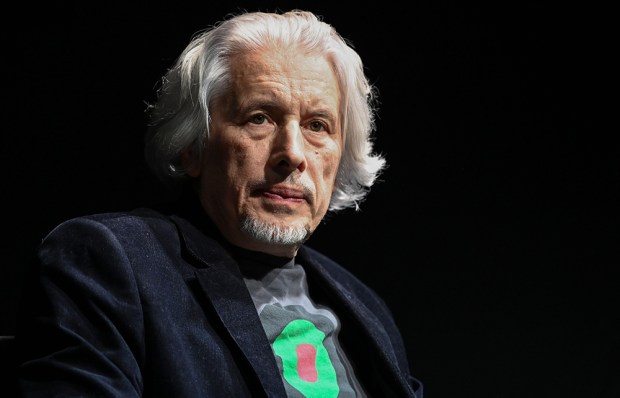Short, fat and shy, the protagonist of Adam Mars-Jones’s latest novel doesn’t have much going for him; even his name — Colin — is unprepossessing. He’s just 18 when he meets an older man called Ray, who is the ringleader of a biker gang in deepest Surrey. The year is 1975 and the bikers are part of a burgeoning postwar subculture of overtly butch gay men. Enthralled by Ray’s rugged good looks and easy grace (‘the only person I’ve ever seen who could turn a page wearing leather gloves and not fumble’), Colin becomes his live-in lover and a kind of mascot-cum-communal sex object for his pals, attending their regular poker nights in the capacity of obliging receptacle. It all seems a bit too good to be true: ‘Ray’s smile was beautiful, but it made me uneasy. I couldn’t see what I had done to deserve it.’
Box Hill is narrated in the first person, in crisp, matter-of-fact prose. Colin is reminiscing from a distance of two decades, having since moved on and built a life. He is now a Tube driver and adult education enthusiast with a marked fondness for trivia; he informs us that the title of Surrey’s highest tavern has changed hands in the intervening years, passing from one Box Hill pub to another (‘there can only be a few inches in it’).
There’s an endearing anti-glamour to this novel, from its geographical setting — the bikers live in suburban locales rarely featured in contemporary fiction, such as Woking and West Byfleet — to its affectionate evocation of the cultural landscape of the 1970s — a world of shandies, Wimpy, Advocaat, obsolescent British-made bikes and the word ‘naff’.
Some of the treatment endured by Colin makes for decidedly uncomfortable reading. The relationship is exploitative and abusive — Ray tells him he only took him on because ‘No one else would have you’ — but the novel’s wry subtitle, ‘A Story of Low Self-esteem’, takes this as a given. What’s intriguing here is the conspicuous lack of reproach in the narrator’s account; his
unrepentant equanimity speaks convincingly to the sense of fatedness that attends early sexual experience — the certitude, even in the face of objective evidence to the contrary, that one is absolutely the agent of one’s own destiny. As Colin recalls: ‘I was ready. I had no real idea of what I was ready for, but still I was ready.’/>
Got something to add? Join the discussion and comment below.
Get 10 issues for just $10
Subscribe to The Spectator Australia today for the next 10 magazine issues, plus full online access, for just $10.
You might disagree with half of it, but you’ll enjoy reading all of it. Try your first month for free, then just $2 a week for the remainder of your first year.














Comments
Don't miss out
Join the conversation with other Spectator Australia readers. Subscribe to leave a comment.
SUBSCRIBEAlready a subscriber? Log in